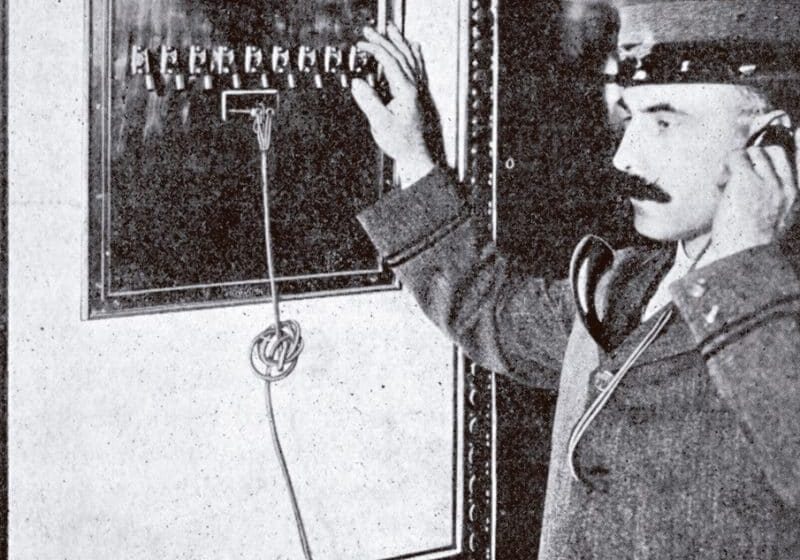KOELSA obtains world’s first mobile-device-based elevator-inspection-system patent.
Reprinted from KOELSA
The Korea Elevator Safety Agency (KOELSA) obtained a patent for an “elevator safety system using a mobile device.” It is the world’s first mobile-device-based, elevator-safety system, which KOELSA researched and developed with its own technology. KOELSA has completed its establishment in the domestic elevator-inspection market, and it is now being implemented.
Two-Way Customized Elevator Inspection System
The elevator inspection system offers a two-way and customized inspection system, based on mobile devices, from an elevator inspection notice and an inspection request to inspection-outcome processing. By processing an inspection request, inspection scheduling and the inspection-outcome notification — which used to be written on paper — as a one-stop service, it improves the customer satisfaction rate and inspection reliability.
When a user requests an inspection through the elevator information center, an inspector, who is dispatched to the site, logs into the smart inspection system on his mobile device. The inspector then offers two-way service by inputting the inspection process and outcome into his smart device and personally briefs the user at the site. The inspection result is automatically sent via “e-Green Post,” and the inspection responsibility and recall systems are implemented by surveying the user satisfaction. It is a private-company-level customized service.
Why is the Smart Inspection System Necessary?
Due to the nature of elevators, an elevator accident will likely lead to a worse accident. The volume of skyscrapers and moving walks is increasing, along with the number of installed elevators, but the number of inspection personnel is limited, which calls for a new paradigm in the execution of inspection work. Thus, the smart inspection system, which could prevent elevator accidents by collecting the safety, inspection and self-inspection information of installed elevators and sharing it with security bodies who instantly respond to elevator users’ complaints, was developed.
The “elevator-safety system using a mobile device” not only realizes elevator safety for the general public but also coincides with the Government 3.0 strategies of “Competent Government,” “Service Government” and “Transparent Government,” as well as with the four principles of openness, communication, sharing and cooperation, which the government has been promoting. A field-oriented, IT-based inspection system offers customized services and promotes Government 3.0 and elevator safety by communicating and sharing relevant information with the consumers.
Systematic Completion of the Smart Inspection System
To achieve the goal of becoming the world’s top elevator-safety organization, KOELSA has chosen elevator-safety-inspection advancement as its key business and is systematically working on the development of a smart inspection system. KOELSA developed its elevator inspection system to a private company level by opening an inspection agency’s customer call center in 2012, implementing “Happy Call Safety” at the inspection sites in 2013 and providing a one-stop civil service with the integration of its elevator complaint centers in 2014. Moreover, the institute switched the inspection tasks to smart work to innovate elevator-inspection work, and established a roadmap for the development of a South Korean-style smart inspection system. KOELSA also established a five-step execution schedule for the introduction of smart work, which is the key component of the inspection system.
The first step was carried out in March 2013, when KOELSA placed an order for the service for “A Study on the Introduction Measures for Smart Work for the Elevator Inspection Task” and established relevant strategies from August to November. The second step was forming a “Smart Work Promotion Committee” with the KOELSA president as the director. The committee held weekly regular meetings where it confirmed the system establishment business plan from internal presentations for the realization of smart work, and began the project. In the third stage, KOELSA signed the contract for the smart work system establishment project in April 2014, finalized the device at the Smart Work Device Selection Committee meeting, and completed the system in September of the same year. In the fourth stage, the institute demonstrated the smart work system in Seoul and Incheon for over two months. It also signed a business contract with Seoul Regional Communications Office using the e-mail service, and completed the training in all the KOELSA branches, as well as the demonstration. In the last stage, KOELSA began the normal operation of the system in all its branches in December 2014, and applied for a relevant patent.
“Hitting Three Birds with One Stone”: Safety Promotion, Inspection Reliability and Work-Efficiency Improvement
The establishment of an elevator-safety inspection system upgraded the existing “Happy Safety Call” into a comprehensive civil-affair center. It offers inspection-date notification, a satisfaction survey on the inspection outcome and one-stop service for elevator-related complaints, which are private-company-level services.
Before the system was developed, the inspectors had to commute back and forth from the inspection site to the office every day to report the outcome. Now, however, thanks to the mobile-device-based inspection system and smart work, if the inspectors go to the site from their workplace, they don’t have to return to the office to process the results. Less travel time and distance mean improved work efficiency and inspection reliability.
Increase in Customer Satisfaction
The recently patented “elevator system using a mobile device” can enlarge the contact point with customers online and collect elevator-safety-related information in the field. The inspection company is expected to share information with the management bodies and prevent elevator accidents. Field commutes became possible with the realization of a smart-device-based work system and a link to the Communications office’s e-Green Post system, which will contribute to an improvement in work productivity and to low-carbon, green growth. Moreover, it will play a part in the establishment of a smart government using information technologies, including the consumer-centric customized service and the training of elevator management personnel in the field using the 3D modeling method. The introduction of smart work will also enable the introduction and settlement of the work system for work-family balance.
KOELSA introduced the elevator safety system in various overseas elevator expos, including Russia. As it is attracting the interest of many countries, the domestic elevator inspection system’s export outlook is bright.
Get more of Elevator World. Sign up for our free e-newsletter.









